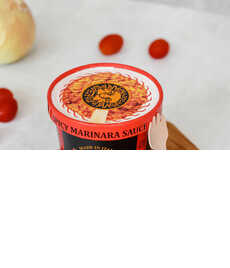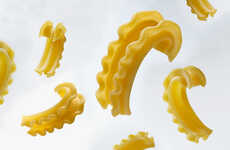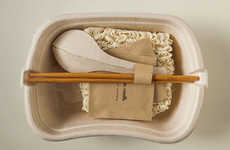
These Flat-Packed Pastas Morphs into Shapes After Immersed in Water
Ellen Smith — May 29, 2017 — Tech
References: news.mit.edu & newatlas
These flat-packed pasta designs were created by MIT's Tangible Media Group, in response to the fact that that even if packed perfectly, dried macaroni packaging is still 67% air by volume. Determined to save both space and money, researchers developed pasta that packs flatly, and morphs into traditional shapes only after immersed in water.
A 3D printer was used to press layers of gelatin, starch, and cellulose into flat sheets. The various layers allow the pasta to expand to different sizes, causing it to curve around the less dense areas, forming shapes that traditional pasta pieces are made in.
This technology would result in the food industry saving money due to lower packaging costs, and consumers being able to receive more food in the same amount of space.
A 3D printer was used to press layers of gelatin, starch, and cellulose into flat sheets. The various layers allow the pasta to expand to different sizes, causing it to curve around the less dense areas, forming shapes that traditional pasta pieces are made in.
This technology would result in the food industry saving money due to lower packaging costs, and consumers being able to receive more food in the same amount of space.
Trend Themes
1. Flat-packed Food - Opportunity for businesses to experiment with different food items that can be packed flat and take up less space during transportation and storage.
2. Shape-morphing Materials - Opportunity for material science industry to develop other shape-morphing materials that reduce waste and increase storage efficiency.
3. Food Science Innovations - Opportunity for food science industry to explore other ways to create novel food items with unconventional ingredients and methods, that also reduce environmental footprint.
Industry Implications
1. Food - The food industry can benefit from exploring shape-shifting pasta and other novel food inventions that reduce packaging waste and improve storage efficiency.
2. Material Science - The material science industry can explore the development of shape-shifting materials that can reduce waste and improve storage efficiency.
3. Environmental Sustainability - The environmental sustainability industry can benefit from the exploration of new materials and innovative production methods that reduce carbon footprint and waste production.
3
Score
Popularity
Activity
Freshness























